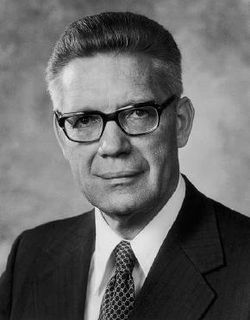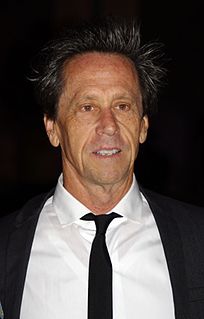A Quote by Henry B. Eyring
One of the surest ways to avoid even getting near false doctrine is to choose to be simple in our teaching.
Related Quotes
Creation science has not entered the curriculum for a reason so simple and so basic that we often forget to mention it: because it is false, and because good teachers understand why it is false. What could be more destructive of that most fragile yet most precious commodity in our entire intellectual heritage-good teaching-than a bill forcing our honorable teachers to sully their sacred trust by granting equal treatment to a doctrine not only known to be false, but calculated to undermine any general understanding of science as an enterprise?.
Are our ways of teaching students to ask some questions always correlative with our ways of teaching them not to ask - indeed, to be unconscious of - others? Does the educational system exist in order to promulgate knowledge, or is its main function rather to universalize a society’s tacit agreement about what it has decided it does not and cannot know?
A false identity is any lie that contradicts our God-given identities through Scripture. These false identities can be created by ourselves because of sin in our lives, choices made, or wrong turns taken and the regret, guilt, and shame that follows. Other false identities are handed to us by outside sources, maybe a damaging word spoken to us by someone or a childhood of abuse. However, not all false identities are negative on the surface, such as successful, attractive, wealthy, athletic, or talented. But even those identities can become false when we place too much of our weight on them.
I think one of the ways you avoid being angry is to avoid being angry at the people in power. They might do crappy things, and piss you off, and make bad decisions, but they shouldn't be hated simply because they're in power. And I thought it was important to humanize them if the book was going to be even-handed to all the different ways you encounter people at work.









































